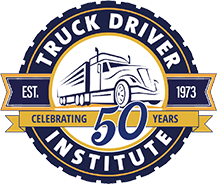What Do You Need to Get a Class A CDL License?
Before you buckle up on your new career as a professional trucker, let’s learn more about what you’ll need to obtain your Class A CDL.
1. Non-Commercial Driver’s License
You’ll need to have a non-commercial driver’s license before you get a CDL. Both the FMCSA and your state’s DMV want to make sure you understand the basic rules of the road and ways of operating a vehicle.
2. Good Driving Record
When you request your CDL permit, the FMCSA and DMV will also check if you have a good driving record. Both organizations want to ensure that you know how to keep others and yourself safe while driving before giving you permission to operate heavier vehicles.
3. Age
In most states, you’ll need to be at least 21 years old to get a Class A CDL. However, some states let drivers get their CDL at 18. If you’re under 21, check in with your state’s DMV to make sure that you’re eligible to get a CDL permit before applying.
4. Proof of Residency
Class A CDL holders need to be either U.S. citizens or have permanent residency in the U.S. When you apply for your CDL permit, you’ll need to show your proof of citizenship or residency. If you don’t have proof of residency, it’s best to speak with an immigration lawyer before applying for your CDL on what your best options are.
5. Health
A truck driver needs to be in good enough health to protect both themselves and others while operating heavy machinery on shared public roads. While it is possible to drive a truck if you have a disability or a chronic illness, it can make things more complex.
All truck driving hopefuls undergo a DOT physical before getting their CDL permit. This exam is run by the Department of Transportation (DOT) and evaluates aspects of your health such as your vision, hearing, blood pressure, and more. At TDI, we help arrange for your DOT physical and include its cost in your tuition so the experience is as hassle-free as possible.
If you do have chronic conditions, bring medical records from your current doctors to your DOT exam. For instance, if you have a history of heart disease, bring documentation from your doctor stating that it does not affect your ability to safely operate a commercial vehicle. If you use assistive devices to help you hear or see, like glasses or hearing aids, bring these along to your DOT test too. This way, the medical examiner can have all the information as they evaluate if your health might pose a physical threat to you or someone else while you’re operating a truck.
6. Education
Although most states don’t have any educational requirements for getting your Class A CDL license. It’s important to get in touch with your state’s DMV and ask to review their CDL permit manual so you’ll know exactly which, if any, education requirements you’ll need to meet.
Do You Need to Pass a Background Check?
While you don’t need to pass a background check to get your CDL, you may need it to get certain jobs, depending on which state you live in. Having a criminal record doesn’t automatically disqualify you from becoming a professional truck driver, but it can make the process more complicated depending on your history.


